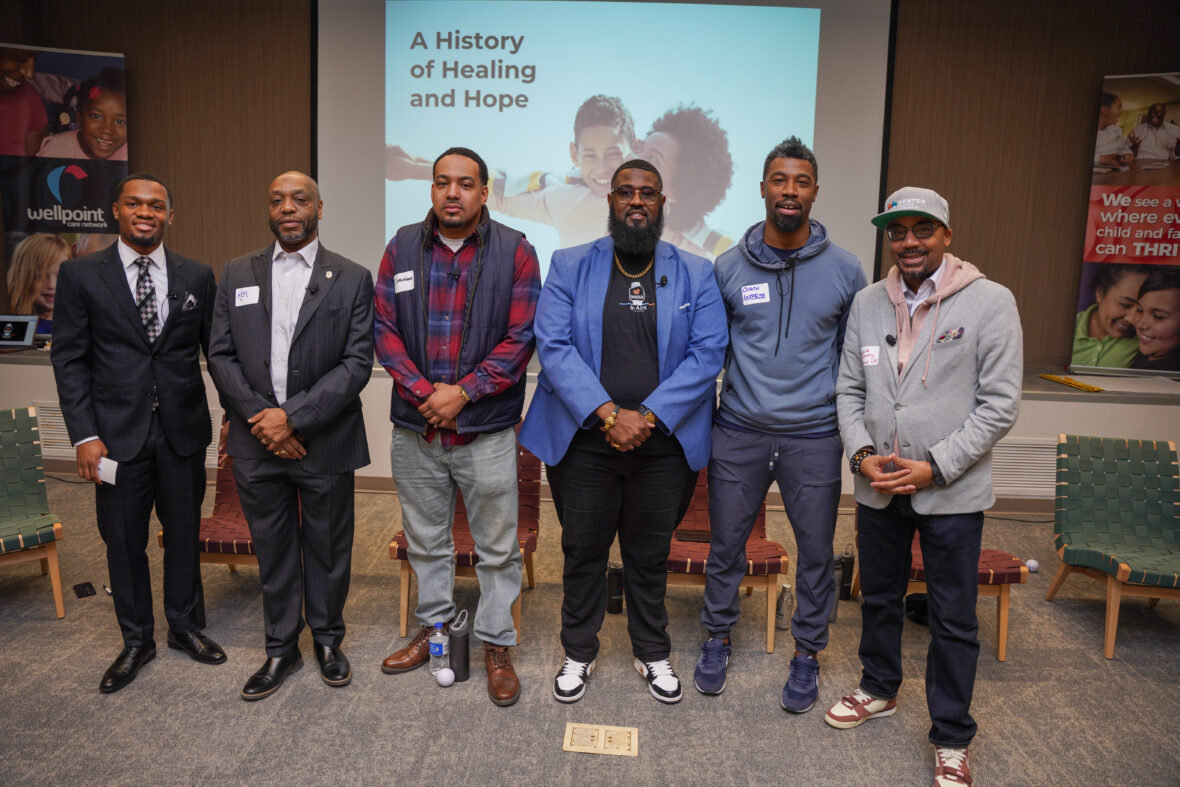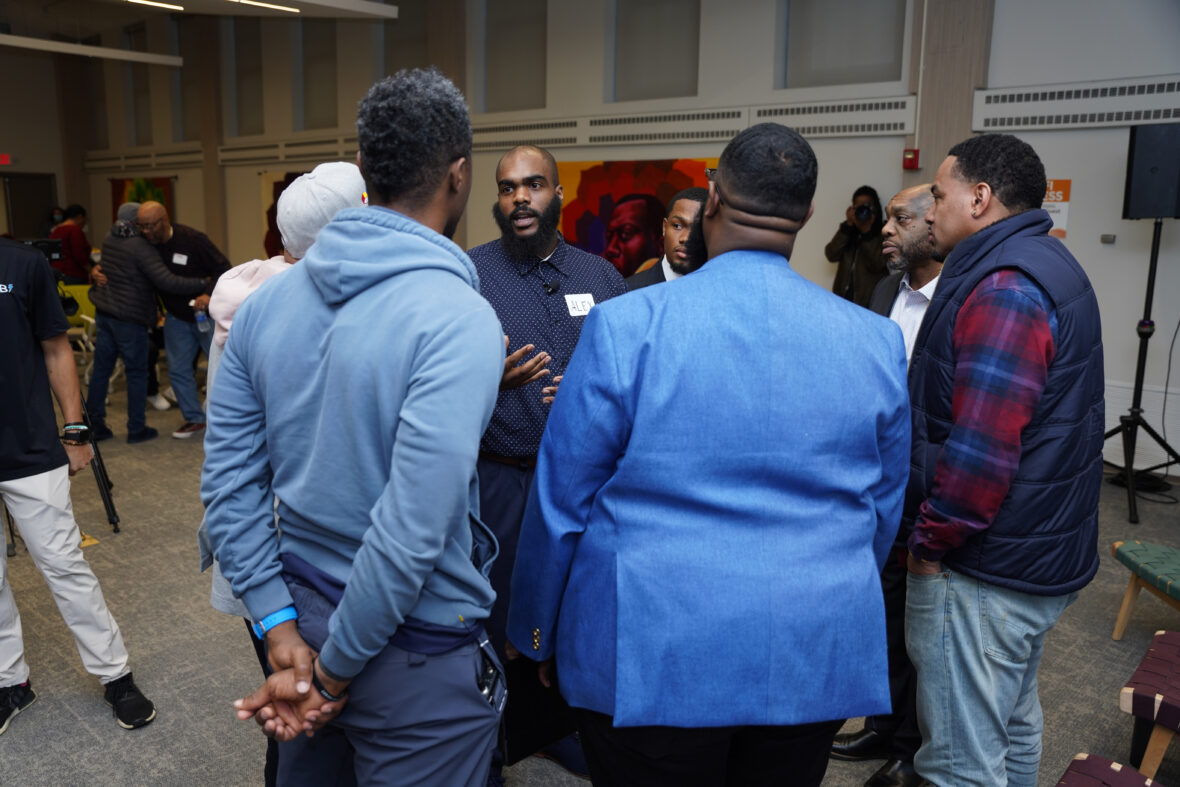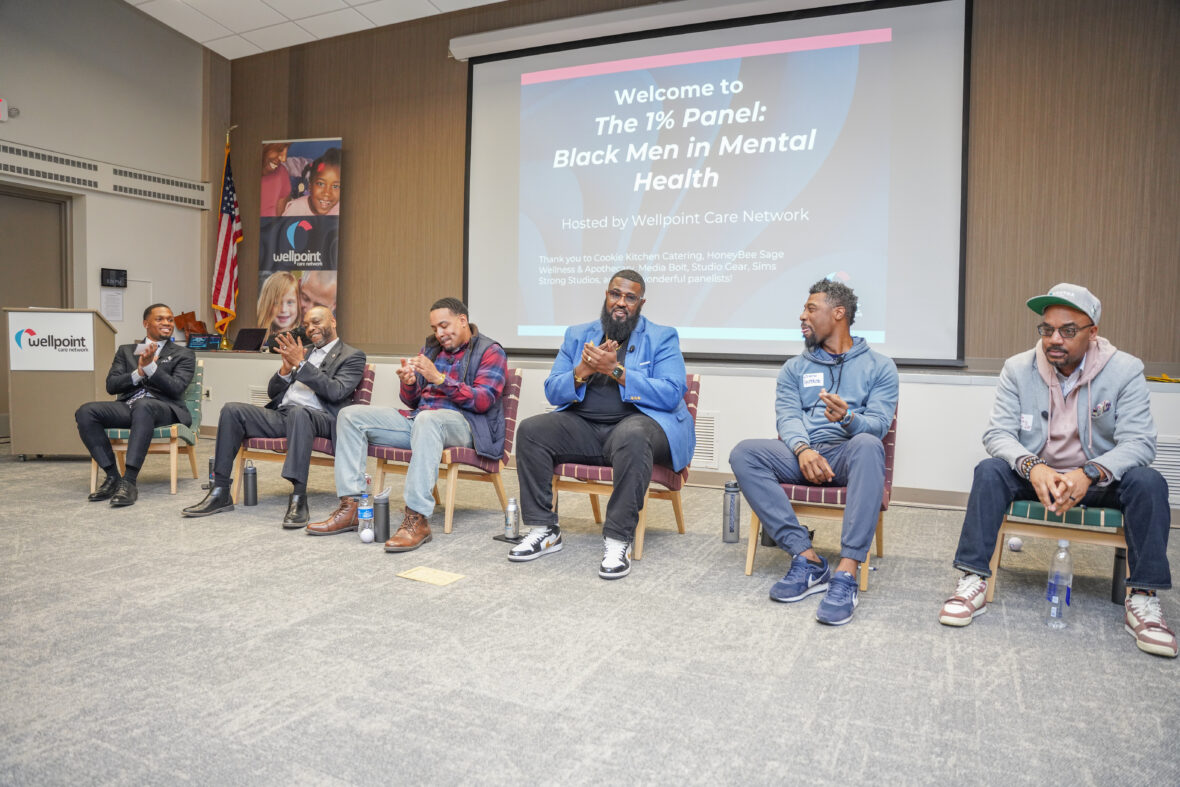Changing the Narrative: Black Men and Mental Health
In therapy, representation matters. People are more willing to open up and talk to someone if they look like them and can relate to what they are going through.
Yet while attending “The 1% Panel: Black Men in Mental Health,” an audience member stood up and said that while looking for a Black male therapist recently, he could only find two in all of Milwaukee.
Nationally, it’s reported that only 4% of all therapists in the United States are Black and only 1% are Black males.
That’s what Wellpoint Care Network is seeking to change and why they are continuing to host panels around the topic of representation in mental health.
“We have the power to make change,” said Alex Williams, Director of Community Engagement at Wellpoint Care Network. “We don’t have to settle for ‘it is what it is.’ We can make it what we want it to be.”
“For the people we are serving, how can we create more access to services for them? How can we create better representation for them? How can we really zero in on those specific demographics and intersections?”
The panel included five Milwaukee-area changemakers: LaNelle Ramey of MENTOR Greater Milwaukee, Montreal Cain of MERA Cares, Officer Dominique Thompson of the Milwaukee Police Department, Kenneth Ginlack of Serenity Inns and Ambrose Wilson-Brown of the Medical College of Wisconsin.

“We all represent hope in a different way,” said Ginlack. “We made it to this panel. I want to represent every young man who thinks he can’t.”
In order to get more Black males entering the field of mental health, it must start at a young age.
“Growing up, I had nobody to talk to,” said Thompson. “As a Black male, we don’t talk about mental health in the community. It’s looked at as being soft. We have to learn how to express to the kids today that is it okay, so they know how to actually navigate and move better than we did.”
“Think about schools right now,” added Ramey. ‘Kids who get sent to see the ‘psychologist’ are the ones who are labeled as bad or acting out in the classroom. Then, others see that as a negative thing. We have to change that conversation.”
It also takes ongoing mentorship and leadership from fellow Black males.
“When we talk about mental health, it isn’t just the young generation,” said Ginlack. “There are professional, Black men right now that still struggle with mental health. Even I still need a mentor. Even I still need validation from other men.”
“We have to change the conversation about what’s being said,” added Ramey. “When we talk about mental health right now, it’s always the bad side, but it’s a necessity. Just like physical health, your mental health is just as important.”


It is about more than just a statistic. It’s about more than just representation. It’s about making lasting and meaningful change for generations to come.
“I appreciate the panel for creating a safe, vulnerable space for Black men, because we don’t have that many,” said Williams. “If we’re able to continue to cultivate these spaces where we feel safe and we feel empowered, we can change our community.”
For information about Wellpoint Care Network’s Mental Health services, click here.
To join our team, click here.
If you are interested in becoming a partner, please email [email protected].








